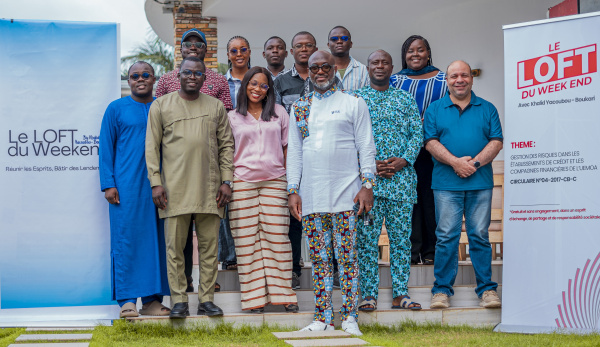Credit risk took center stage in Kpalimé, southwestern Togo, from August 15 to 17 during a high-impact event. The “Weekend Loft – Special Edition Credit Risk & AI” brought together finance leaders, bankers, and tech innovators from across Africa.
This third edition of the event arrived at a time when the financial sector faces intense regional and economic pressure. As a result, attendees focused on forward-thinking solutions that could stabilize and modernize credit systems.
Kpalimé served as the perfect backdrop for this meeting of minds. Surrounded by natural beauty and creative energy, participants tackled some of the industry’s most urgent challenges.
More importantly, they explored how artificial intelligence can improve how banks prevent and monitor credit risk. In today’s fast-moving financial environment, outdated systems no longer meet the demands of lenders or borrowers.
Read more: ECOWAS Plans Life Without Niger, Burkina Faso, Mali
Therefore, the event’s agenda centered on innovation, collaboration, and building trust through smarter systems. Experts shared case studies, debated tools, and proposed frameworks that could work in both large and small institutions.
In addition, the event highlighted the growing need for cross-border cooperation. Many African economies are interlinked, meaning financial shocks in one country often affect neighboring markets.
Because of this, developing a shared approach to credit risk has become more important than ever. Technology, especially AI, offers new ways to predict defaults and strengthen risk management.
Moreover, the regional tension added urgency to the conversations. Economic uncertainty, inflation, and digital fraud continue to challenge financial institutions. For many, adopting AI is no longer optional—it’s essential.
During the sessions, professionals discussed how machine learning could make loan decisions faster and more accurate. They also emphasized the importance of ethical use of AI and transparent data policies.
Another key takeaway was the role of training and talent. As tools evolve, so must the people behind them. Several panelists stressed the need to upskill African financial teams to keep pace with these rapid changes.
Furthermore, the event encouraged stronger partnerships between banks, startups, and regulatory bodies. When these players align, innovation becomes safer and more impactful.
By the end of the weekend, participants left with fresh insights and new connections. The event succeeded not just in sparking dialogue, but also in planting seeds for future collaboration.
Clearly, credit risk management is undergoing a transformation. Togo’s role in hosting such a pivotal discussion reflects its ambition to be a player in this evolution.
As the banking world adapts to AI and digital disruption, events like this become essential. They don’t just prepare institutions for the future—they help shape it.
Kpalimé may be a quiet town, but for one weekend, it became a hotspot for Africa’s financial future.





